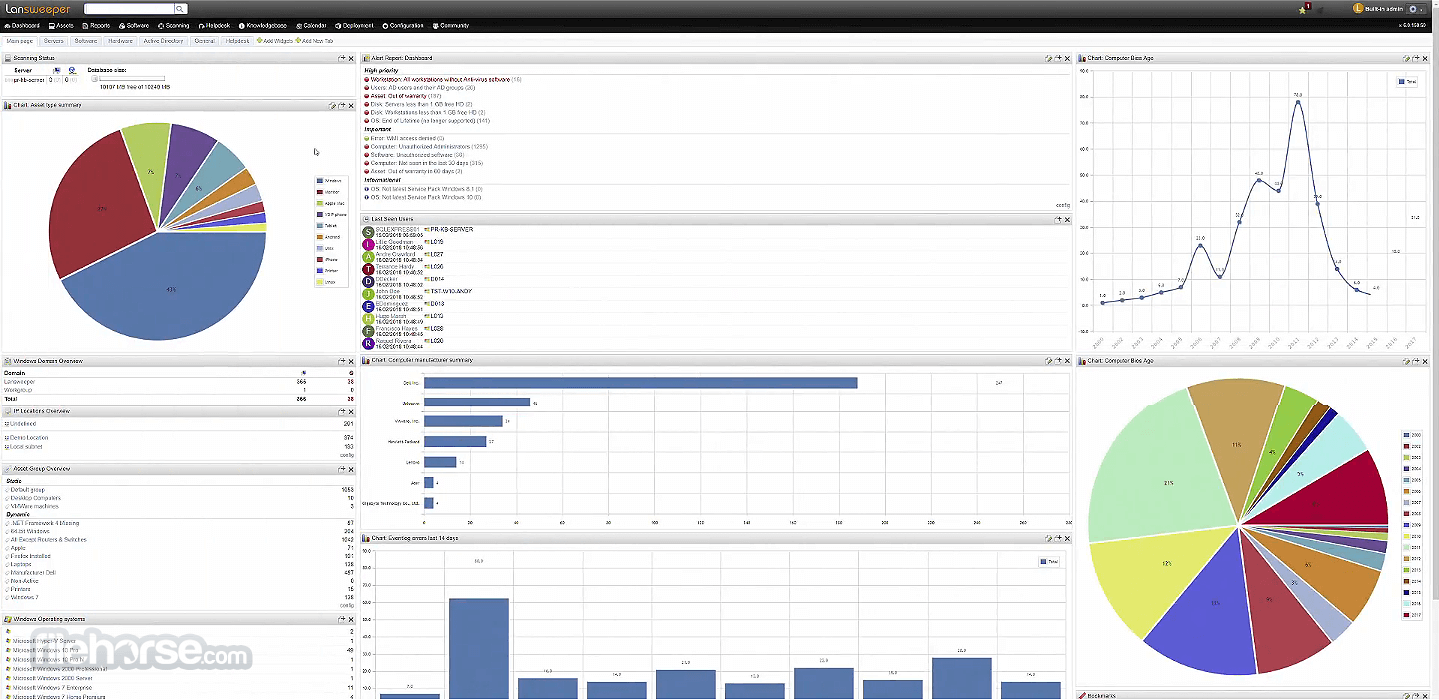-
Latest Version
-
Operating System
Windows XP / Vista / Windows 7 / Windows 8 / Windows 10
-
User Rating
Click to vote -
Author / Product
-
Filename
LansweeperSetup.exe
Sometimes latest versions of the software can cause issues when installed on older devices or devices running an older version of the operating system.
Software makers usually fix these issues but it can take them some time. What you can do in the meantime is to download and install an older version of Lansweeper 7.2.106.26.
For those interested in downloading the most recent release of Lansweeper or reading our review, simply click here.
All old versions distributed on our website are completely virus-free and available for download at no cost.
We would love to hear from you
If you have any questions or ideas that you want to share with us - head over to our Contact page and let us know. We value your feedback!
What's new in this version:
- Changed: For compatibility with new features, Lansweeper databases hosted in SQL Compact are now automatically converted to SQL LocalDB when updating Lansweeper, with existing data remaining intact
- Changed: LsAgent now comes packaged with a newer version of .NET Core, 2.1.12, as the previous version is incompatible with certain Linux distributions and could result in the following installation error: “No usable version of the libssl was found”
- Changed: SQL LocalDB is now a fully supported database server option in the Lansweeper installer
- Changed: The LsAgent-osx app within the LsAgent installer for Mac is now signed and the installer is now notarized by Apple as well
- Changed: Windows Vista and Windows Server 2008 are no longer supported operating systems for hosting a Lansweeper installation
- Fixed: Cross-site scripting (XSS) issue CVE-2019-18955 when prefacing <script></script> with “> in a website URL, an issue found by Christian Hobbs of CCL Group Ltd
 OperaOpera 117.0 Build 5408.39 (64-bit)
OperaOpera 117.0 Build 5408.39 (64-bit) PC RepairPC Repair Tool 2025
PC RepairPC Repair Tool 2025 PhotoshopAdobe Photoshop CC 2025 26.4 (64-bit)
PhotoshopAdobe Photoshop CC 2025 26.4 (64-bit) OKXOKX - Buy Bitcoin or Ethereum
OKXOKX - Buy Bitcoin or Ethereum iTop VPNiTop VPN 6.3.0 - Fast, Safe & Secure
iTop VPNiTop VPN 6.3.0 - Fast, Safe & Secure Premiere ProAdobe Premiere Pro CC 2025 25.1
Premiere ProAdobe Premiere Pro CC 2025 25.1 BlueStacksBlueStacks 10.41.661.1001
BlueStacksBlueStacks 10.41.661.1001 Hero WarsHero Wars - Online Action Game
Hero WarsHero Wars - Online Action Game TradingViewTradingView - Trusted by 60 Million Traders
TradingViewTradingView - Trusted by 60 Million Traders LockWiperiMyFone LockWiper (Android) 5.7.2
LockWiperiMyFone LockWiper (Android) 5.7.2










Comments and User Reviews